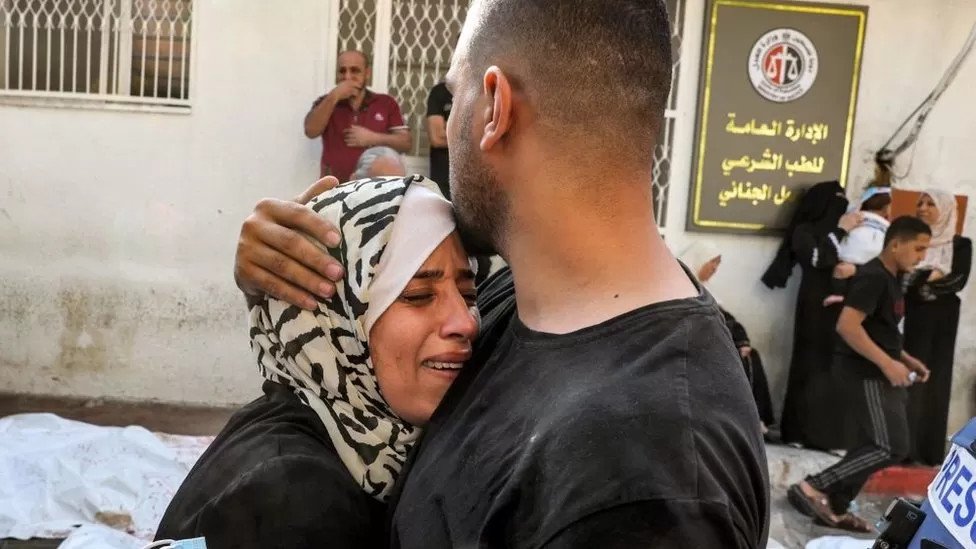Over 100,000 Gazans injured, missing or dead, WHO says

GENEVA: The World Health Organization (WHO) said on Friday over 100,000 Gazans are injured, missing or presumed dead as the situation deteriorates in the enclave.
The figure makes up 4.3 percent of Gaza's 2.3 million population.
Speaking to a United Nations weekly briefing via video link from Jerusalem, Richard Peeperkorn, WHO representative for the occupied Palestinian territory, said the rest of the population faces dire circumstances, struggling to secure their basic needs of safety, food, health and warmth.
Central Gaza is witnessing an escalation of hostilities, further crippling access to existing health facilities, he said.
Crippled Access To Healthcare
Expressing deep concern over the lack of sustained access to hospitals for both patients and health workers, Peeperkorn said only 13 out of the 36 hospitals were partially functioning in Gaza, and merely 13 of the 73 primary healthcare centers were operational.
The ongoing conflict and hostility had disrupted healthcare services, making it challenging to provide adequate treatment for both war-related injuries and chronic illnesses.
"We estimate now that a minimum of 8,000 Gazans should be referred," Peeperkorn said. Of these in need, 6,000 suffered war injuries and multiple traumas, and only a small fraction had been successfully transferred through the southern city of Rafah, he added.
Access to northern Gaza remained severely restricted, with WHO's requests to reach health facilities in the area being consistently denied.
At the Gaza European Hospital, where 22,000 people sought shelter, medical supplies were insufficient, and risks were mounting for diseases to spread. Health workers face immense challenges, balancing care for patients and their own families. Some had been working day in, day out for three months straight.
The Al Nasser Hospital in the city of Khan Younis was down to a single ambulance, and patients had to be transported with donkey carts. With 400 patients and a shortage of specialists, the hospital's ability to provide adequate care is at risk.
Grave Health Isses
The humanitarian crisis extended beyond healthcare, with food insecurity and water contamination creating fertile ground for the spread of infectious diseases.
The WHO representative in Gaza cited alarming statistics: over 245,000 recorded cases of respiratory infections, 160,000 cases of diarrhea among children under five, and nearly 70,000 cases of scabies and lice. Malnutrition had become a significant concern, exacerbated by limited food distribution within Gaza.
Attacks against healthcare facilities were also highlighted, with Peeperkorn reporting 342 recorded attacks resulting in 627 fatalities and 783 injuries. Sixty-one health workers were currently detained, further crunching the already strained healthcare system.
Ahmed Dahir, head of the WHO sub-office in Gaza, said thousands of people were fleeing to Rafah in search of food and safety, with many visibly thin and weak due to the lack of food.
The sick and injured struggled to find adequate healthcare, but hostilities around major medical facilities obstructed access for patients and healthcare providers, he said.









Leave Comment